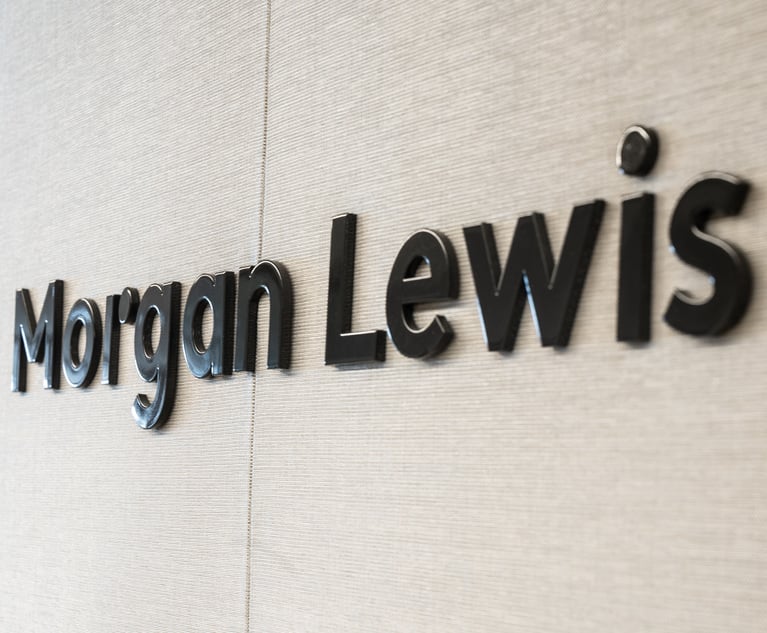Hong Kong firms poised to advise on PRC law in China as liberalisation gathers pace
Hong Kong law firms are set to discover whether they will be permitted to advise on PRC law in China in a new special economic zone under development in the south of the country. The Law Society of Hong Kong has submitted proposals to the mainland authorities asking for Hong Kong firms to be allowed to advise on the ground in China by setting up joint ventures with mainland outfits in the new Qianhai Special Economic Zone (SEZ), which is due for completion in 2020. It is expecting a decision within the next two months. The proposals state that Hong Kong firms should be allowed to tie up with mainland Chinese firms based in the Guangdong province to form new joint entities, which in turn could offer a one-stop shop for legal services for Chinese clients.
July 11, 2013 at 07:03 PM
4 minute read
Lawyers welcome plans to allow HK firms to operate in China through tie-ups with mainland outfits
Hong Kong law firms are set to discover whether they will be permitted to advise on PRC law in China in a new special economic zone under development in the south of the country.
The Law Society of Hong Kong has submitted proposals to the mainland authorities asking for Hong Kong firms to be allowed to advise on the ground in China by setting up joint ventures with mainland outfits in the new Qianhai Special Economic Zone (SEZ), which is due for completion in 2020. It is expecting a decision within the next two months.
The proposals state that Hong Kong firms should be allowed to tie up with mainland Chinese firms based in the Guangdong province to form new joint entities, which in turn could offer a one-stop shop for legal services for Chinese clients.
The new rules, if accepted, would also apply to the local branches of most international firms operating in the region. In order to set up a local base, partners are required to be Hong Kong qualified with a minimum of two to five years' post-qualification experience in the city.
Acceptance of the proposals would be a huge step forward in the liberalisation of the Chinese legal market, which currently bans foreign law firms from advising on PRC law on the ground in China. The rules have so far prevented international firms from fully tapping into the world's second largest economy, despite there being no such restrictions on Chinese law firms in the US and Europe.
"We've not had the green light from the Government yet, but we have our fingers crossed," said Stephen Hung, vice president of the Law Society.
"Hong Kong firms could not work alone – [the proposal is that] a Hong Kong firm and a mainland firm merge and set up a new office where they will share expertise. And it would have to be a firm in Guangdong."
The Qianhai SEZ is a $45bn (£30bn) project under development near Shenzhen, adjacent to Hong Kong in the south of China. The zone is one of several purpose-built areas aiming to boost trade between Hong Kong and mainland China, and to test the liberalisation of the PRC market.
Should the new rules be approved, Hong Kong lawyers can expect to receive training on PRC law through continual professional development courses, taught in modules. It is currently unclear when or where the training would take place, but it is expected that Tsinghua University in Beijing, which is a partner in the scheme, could play a role through its affiliate school in Shenzhen.
In addition to relaxing restrictions on law firms, the SEZ is also expected to enable Hong Kong banks to lend renminbi directly to mainland companies, a practice also currently not permitted.
Partners at international law firms have embraced the move to open up the China market.
Freshfields Asia managing partner Robert Ashworth said: "We have been closely following developments in relation to the Qianhai cooperation zone for some time and believe that the proposals, if implemented in the manner expected, could present a valuable option for providing legal services on the mainland. Once the rules come into effect we would certainly explore what opportunities this could offer us."
Baker & McKenzie Hong Kong, PRC and Vietnam managing partner Paul Tan said his firm would also look at tie-up opportunities as and when the rules come into law.
"If PRC law capability were permitted, global firms would be able to take a more holistic approach and offer clients legal advice that meets international standards while complying with local regulations. The overall legal costs to the clients are also likely to be reduced. We will certainly explore any opportunity within the framework permitted by law."
This content has been archived. It is available through our partners, LexisNexis® and Bloomberg Law.
To view this content, please continue to their sites.
Not a Lexis Subscriber?
Subscribe Now
Not a Bloomberg Law Subscriber?
Subscribe Now
NOT FOR REPRINT
© 2025 ALM Global, LLC, All Rights Reserved. Request academic re-use from www.copyright.com. All other uses, submit a request to [email protected]. For more information visit Asset & Logo Licensing.
You Might Like
View All
Morgan Lewis to Relocate to Former Goldman Sachs UK Building in £6.6M Annual Deal
1 minute read
Australian Class Action to be Launched Against Google Over Display Advertising
4 minute read
Reed Smith Bolsters Corporate Team With Markets Partner Hire in London
2 minute read
Trinity International Expands With Singapore Office, Eyes Growth in Infrastructure and Energy
Trending Stories
- 1How the Court of Public Opinion Should Factor Into Litigation Strategy
- 2Debevoise Lures Another SDNY Alum, Adding Criminal Division Chief
- 3Cooley Promotes NY Office Leader to Global Litigation Department Chair
- 4What Happens When Lateral Partners’ Guaranteed Compensation Ends?
- 5Tuesday Newspaper
Who Got The Work
J. Brugh Lower of Gibbons has entered an appearance for industrial equipment supplier Devco Corporation in a pending trademark infringement lawsuit. The suit, accusing the defendant of selling knock-off Graco products, was filed Dec. 18 in New Jersey District Court by Rivkin Radler on behalf of Graco Inc. and Graco Minnesota. The case, assigned to U.S. District Judge Zahid N. Quraishi, is 3:24-cv-11294, Graco Inc. et al v. Devco Corporation.
Who Got The Work
Rebecca Maller-Stein and Kent A. Yalowitz of Arnold & Porter Kaye Scholer have entered their appearances for Hanaco Venture Capital and its executives, Lior Prosor and David Frankel, in a pending securities lawsuit. The action, filed on Dec. 24 in New York Southern District Court by Zell, Aron & Co. on behalf of Goldeneye Advisors, accuses the defendants of negligently and fraudulently managing the plaintiff's $1 million investment. The case, assigned to U.S. District Judge Vernon S. Broderick, is 1:24-cv-09918, Goldeneye Advisors, LLC v. Hanaco Venture Capital, Ltd. et al.
Who Got The Work
Attorneys from A&O Shearman has stepped in as defense counsel for Toronto-Dominion Bank and other defendants in a pending securities class action. The suit, filed Dec. 11 in New York Southern District Court by Bleichmar Fonti & Auld, accuses the defendants of concealing the bank's 'pervasive' deficiencies in regards to its compliance with the Bank Secrecy Act and the quality of its anti-money laundering controls. The case, assigned to U.S. District Judge Arun Subramanian, is 1:24-cv-09445, Gonzalez v. The Toronto-Dominion Bank et al.
Who Got The Work
Crown Castle International, a Pennsylvania company providing shared communications infrastructure, has turned to Luke D. Wolf of Gordon Rees Scully Mansukhani to fend off a pending breach-of-contract lawsuit. The court action, filed Nov. 25 in Michigan Eastern District Court by Hooper Hathaway PC on behalf of The Town Residences LLC, accuses Crown Castle of failing to transfer approximately $30,000 in utility payments from T-Mobile in breach of a roof-top lease and assignment agreement. The case, assigned to U.S. District Judge Susan K. Declercq, is 2:24-cv-13131, The Town Residences LLC v. T-Mobile US, Inc. et al.
Who Got The Work
Wilfred P. Coronato and Daniel M. Schwartz of McCarter & English have stepped in as defense counsel to Electrolux Home Products Inc. in a pending product liability lawsuit. The court action, filed Nov. 26 in New York Eastern District Court by Poulos Lopiccolo PC and Nagel Rice LLP on behalf of David Stern, alleges that the defendant's refrigerators’ drawers and shelving repeatedly break and fall apart within months after purchase. The case, assigned to U.S. District Judge Joan M. Azrack, is 2:24-cv-08204, Stern v. Electrolux Home Products, Inc.
Featured Firms
Law Offices of Gary Martin Hays & Associates, P.C.
(470) 294-1674
Law Offices of Mark E. Salomone
(857) 444-6468
Smith & Hassler
(713) 739-1250








